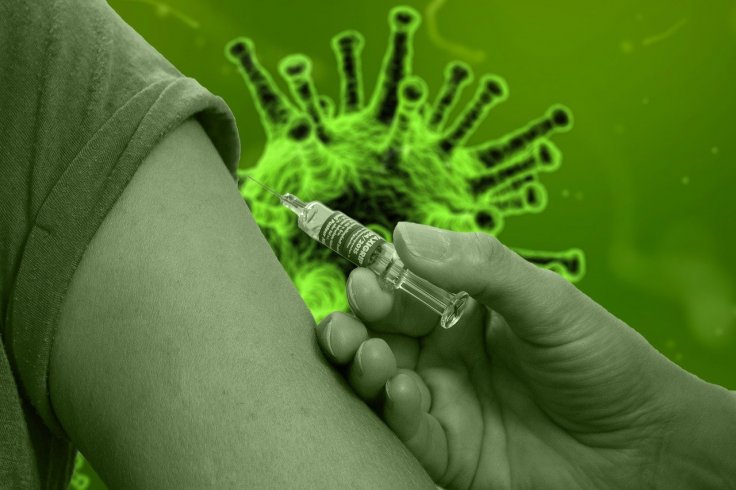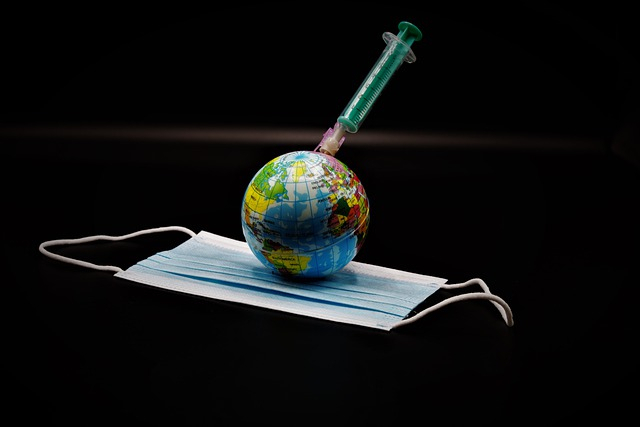Days after the UK became the first country to begin mass vaccination using Pfizer-BioNTech COVID-19 shot, the Food and Drug Administration (FDA) in the US has authorized the vaccine for emergency use and called the announcement a "significant milestone".
The vaccine has also received regulatory approval in Canada, Bahrain and Saudi Arabia. But according to experts, challenges are not over until people all around receive a vaccine within time and the clock is ticking.
Farhana Nakhooda, Senior Vice President, Healthcare & Life Sciences (Asia Pacific), Health Catalyst, and Gary Chua, Chief Operating Officer, Asia Pacific and Japan, Syniti, explained the issues with these current vaccines and what governments around the world should do to ensure the safety of the citizens from novel Coronavirus infection.

Distribution of Coronavirus Vaccines
According to them, supply chain management is one of the major challenges. "While there are many unprecedented logistical challenges, some key notable ones that governments will need to consider are efficient cold supply chain, fair distribution, and accurate tracking of follow-up doses for effective population vaccination," Gary told IBTimes Singapore.
While pointing out one specific issue with the current vaccines against the Coronavirus caused disease, including Pfizer-BioNTech shot, both the experts said that these vaccines need to be stored and transported under specific cold temperature conditions otherwise the vaccines could be rendered ineffective.
"A data-driven approach, where governments and healthcare organizations collect and share real-time, reliable data, could help address these issues," he said. Gary believes that governments will need to map the cold chain requirements and identify any potential gaps to ensure that a resilient cold supply chain system is in place to efficiently bring the vaccine from lab to vaccination points. :Poor quality data in logistics and supply chain systems will pose a huge risk on the delivery and effectiveness of the vaccine," he added.
Gary also added that fair distribution will be a problem. Given that countries will initially be receiving limited doses until Coronavirus vaccine, production can be scaled up to full coverage. According to him, to formulate distribution plans it is important for the governments around the world to have accurate data to reliably pinpoint key at-risk populations so that priority can be given to the right people at the right time.
Nakhooda noted that access to near real-time data on healthcare medical supplies and manpower availability can help countries optimize resources to make sure that there are enough trained people and medical equipment, such as personal protective equipment and syringes, to administer a COVID -19 vaccine. "Governments will also need to rely on data to know if the vaccines were compromised during transportation to avoid administering unsafe and damaged vaccines to patients," she added.
Priority List and Challenge Ahead
Authorities have determined which group of people will get a vaccine first—healthcare workers, the elderly, essential workers, and those with underlying health conditions—but the challenge is to determine who gets it next.
"Using our COVID-19 registry from the US, we worked with the Ministry of Health Office for Healthcare Transformation in Singapore to develop a tool that can predict the likelihood of COVID-19 mortality. From this data, we were able to observe that the elderly, males, those with cancer, and those who smoke have a higher risk of mortality. These data-powered models can support the early allocation of vaccines to ensure that those with the highest risks of poor outcomes or death from COVID are being prioritized," said Nakhooda.

She pointed out that governments and healthcare providers need to manage the outcome of the vaccine and its potential side effects. While a normal vaccine development process takes more than 10 years, with COVID-19 there was a huge urgency to accelerate the process, and the release of a vaccine within a year.
According to her with this condensed time frame, research teams are under pressure to understand and develop a vaccine against the virus with little existing data or research, leading to several challenges, such as:
"Answering these questions around vaccine efficiency, and vaccine safety will be critical in assuring the public that the vaccine is safe for them," she said.
Gary said that people who get the vaccine will need two doses—administered three to four weeks apart for the vaccine to be effective—therefore the task of monitoring and tracking who received which vaccine and when a follow-up dose is required will be a huge data undertaking.
However, as all the countries around the world are now hoping to get a vaccine as soon as possible, Nakhooda said over the next few years, all the nations will most likely be using vaccination registries to track those people who have had the vaccine, which vaccine they got, how many doses were given and the potential side effects. Some countries will even be deploying vaccine management systems and others will use mobile apps to capture patient-reported side effects, said the Health Catalyst expert.

"When we take this patient safety and efficacy data and link them with the patients' medical history, we can start to understand which vaccines are most effective and safe for which type of populations. For example, for pregnant women, one vaccine may work best with minimal side effects, while for the elderly with underlying conditions, it might be another vaccine," said Nakhooda.
Since there is so minimal data available on the efficacy of currently available vaccines, the COVID-19 registry could be helpful that is a collection of data on Coronavirus infected patients from electronic medical records and other health systems to deliver a deep understanding of those who have been infected, she said. The accumulated data can help the researchers to understand the virus better, what treatments are most effective, and who are more prone to get severely ill. "In the U.S, Health Catalyst has one of the largest COVID-19 registries and we will be using this registry to track patient safety and efficacy data," Nakhooda added.
However, as the Coronavirus pandemic shook the whole world, not just one country, Syniti's Gary advised that "out of this COVID-19 crisis, it is an opportunity for governments to strengthen their health system, which will need to be underpinned by quality data to allow its nation to have more transparency and be more effective in dealing with similar health crises in the future."









